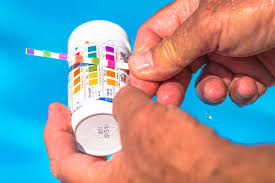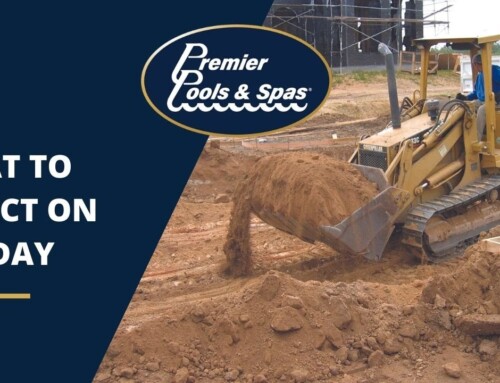Pool care basics start with balanced water. Proper testing ensures that calcium levels are maintained and that there are no metals present in your pool water. These tests can be completed by you or your pool service professional. Below are some pool care basic guidelines for testing your pool water.
Balancing your pool’s pH
First of all, you need to understand what exactly pH is. The pH is the measurement of acid and base in the pool water. The pH of the pool should be tested and adjusted on a weekly basis. If the pH of the pool water slides into the acidic side of the scale, corrosion of pool surfaces and equipment can occur. If the pH of the pool water drifts to the base side, cloudy water can occur.
You may use a pH increaser to increase the pH of the pool. At 8.5, chlorine is only about 10% active. At 7.0, chlorine is about 73% active. If you maintain pH around 7.5, the chlorine will be 50-60% active. Keeping the pH in check will allow you to use the full potential of the chlorine that is already in the pool.
If you must lower the pH of the pool, use a pH decreaser. Follow the label directions for the proper amount of the products to add based on test results and pool size.
Balancing your pool’s calcium hardness
Calcium Hardness is the amount of dissolved calcium in your swimming pool water. Low calcium hardness levels can cause plaster finish etching and shorten the life of vinyl liners. High calcium levels can result in calcium deposits on the pool surfaces as well as equipment.
The proper range for calcium hardness in pool water is 200- 250 ppm for concrete pools, and 175-225 ppm for vinyl pools. Your pool service professional can advise you on the best method for treating your pool if you encounter high calcium hardness.
Balancing your pool’s total alkalinity
Another aspect of pool care basics is testing your pool’s total alkalinity. To prevent the pH from varying up and down, the proper amount of acid, or total alkalinity, must be maintained in your swimming pool. The pool should be tested weekly with a total alkalinity of 1 20-150 ppm.
Low total alkalinity results in a pH bounce and corrosiveness. This is dangerous because you increase the possibility of staining the pool. High total alkalinity also can cause the pH to fluctuate as well as cause cloudy pools along with possibility of scaling.







